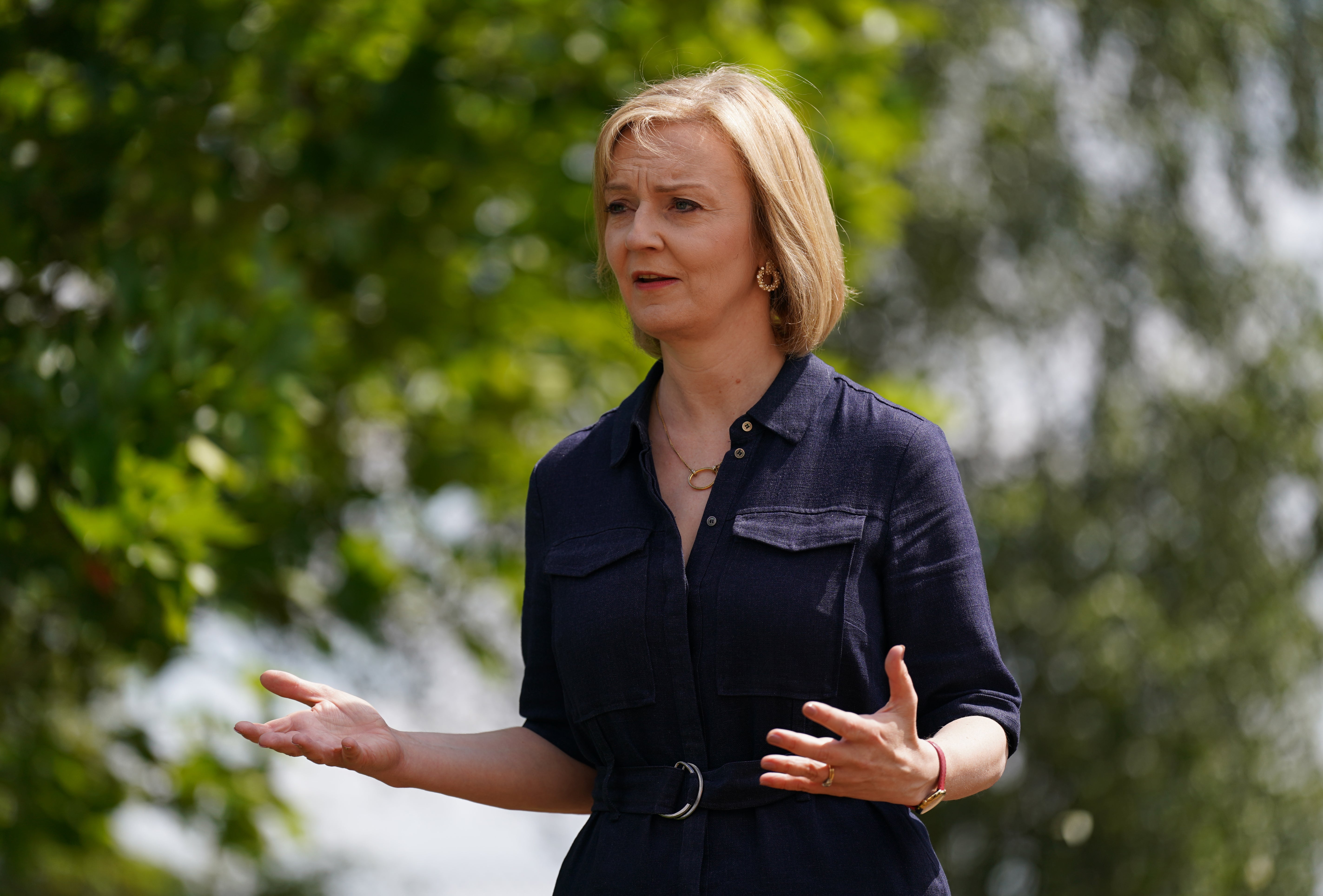Liz Truss has pulled off Boris Johnson’s trick of appearing to offer a fresh start
The frontrunner might succeed with Conservative members, but will the wider electorate buy it?


Boris Johnson achieved a remarkable feat, presenting himself as a new government that had nothing to do with the Conservative Party that had been in power for the previous nine years. Now Liz Truss is poised to succeed with the same trick. Fool me once, and so on.
Will Walden, an adviser to Johnson as London mayor and foreign secretary who helped run his leadership campaign in 2019, watched Truss at the hustings on Thursday. “She’s done an extraordinary thing,” he told LBC, “which is what Boris did in 2019 – she’s almost painted a picture that she’s totally new to government.”
It is easy to point out the contradictions. She has been in government for 10 years and is still in the cabinet, unlike her opponent. She is running as a supporter of Johnson, supported by Johnson, and as the candidate of change. This involves a complicated unspoken story: that Johnson wanted to cut taxes but was a prisoner of the Treasury and, now that Rishi Sunak is out of the way, she can be the prime minister that Johnson wanted to be.
Conservative Party members want to believe it, but it isn’t true. Johnson managed to present his government as a fresh start mainly because of Brexit, but also because it did change direction. He was a big-state, interventionist Conservative, a Brexity Hezza, as he put it. Theresa May had started to move away from the constrained public spending of the coalition years, but lacked conviction. It took Johnson’s 2019 manifesto promises on the NHS, schools and police to dramatise the change.
Naturally, Johnson wanted to cut taxes too, but, as Sunak tried to explain to Andrew Neil yesterday, if you want good public services they ultimately have to be paid for out of taxes. Johnson could not defy this economic reality while in government, but Truss, from her position outside government in the Foreign Office, can dismiss it as the “Treasury orthodoxy”.
And she is winning, because party members want to believe. They don’t want to accept that the £400bn coronavirus spending was real money, so when Truss says it can be put in a compartment called war debt and forgotten, they nod and move on.
Success will create its own aura. If Truss becomes prime minister, the government will look renewed. Without referring to Johnson by name, she will disown him by imposing new standards of probity in politics. An adviser on ministerial standards will be appointed and given powers. Tax cuts will be announced and, because it is an exciting new government, no one will pay too much attention to the stealth tax rises imposed at the same time.
She and the Conservatives will enjoy a bounce in the opinion polls as the nation rejoices at the return of John Redwood to ministerial office. But it is unlikely to work for long.
The trick of renewing a party in office is a hard one to carry off. Johnson succeeded at the last election, with the advantages of Jeremy Corbyn as his opponent, an unfinished Brexit to get done and the promise of more spending on public services. His renewal was partly bluff and bluster with photo opportunities, but there was also more substance to it than there is likely to be with Truss. Once she has done “ethics” and tax cuts that will amount to a difference of judgement about the scope for borrowing over the next three years, there won’t be much else that is different. The gap between her and Sunak’s fiscal position is significant, but its effects won’t match her rhetoric of sweeping change and the “end of business as usual”.
To keep up to speed with all the latest opinions and comment sign up to our free weekly Voices Dispatches newsletter by clicking here
Indeed, she is more likely to be blamed, as Sunak says, for making inflation worse. If she avoids early stumbles, she might be hailed as the more honest leader that the nation needs in a time of economic crisis. But her skill in presenting herself as the authentic embodiment of the opposite of what she used to be is likely to burn itself out quickly.
Each renewal comes at a price. At some point, a party of government exhausts itself. Each wave of dispossessed ministers creates new disloyalties. The animosities of the leadership campaign, from “fairytales” to “unfit for office”, take their toll. It feels as if the Conservative Party is enjoying the descent into civil war. The myth of Boris Betrayed is a strong one among party members and, if the opinion polls turn again and the next general election looks as if it is heading for a hung parliament, many of them will believe (and Johnson will tell them) that if only they had stuck with him they would have won it.
I don’t think it would be true. The parliamentary party got rid of Johnson because most British voters had decided that he was more than usually dishonest for a politician. But they won’t be taken in by the trick of Truss pretending to be a new government; after two years of crisis she is likely to seem very much like the tail end of 14 years of inconsistent Tory government. That magic won’t work any more.
Join our commenting forum
Join thought-provoking conversations, follow other Independent readers and see their replies
Comments
Bookmark popover
Removed from bookmarks